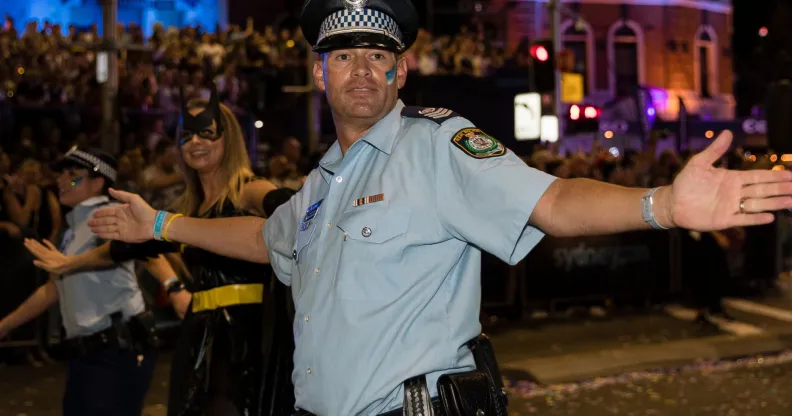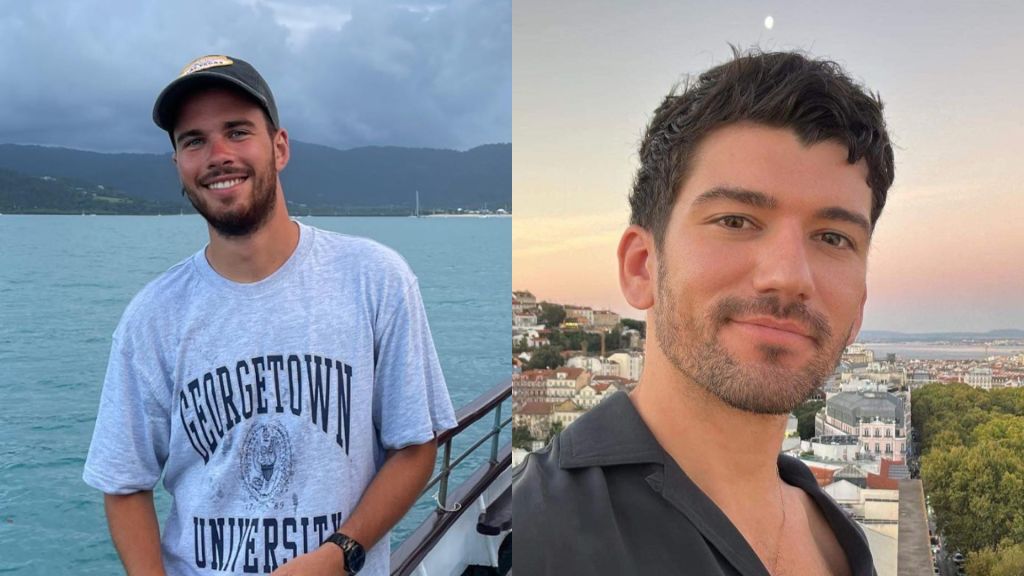U-turn sees police re-invited to Sydney Mardi Gras – but they can’t wear uniforms

An NSW Police officer during a Mardi Gras parade. (Getty)
Police officers will be allowed to join the Mardi Gras parade in Sydney this weekend, but only in plain clothes, following the deaths of gay couple Jesse Baird and Luke Davies.
Commissioner Karen Webb confirmed that the Mardi Gras oversight board had reversed its decision to bar officers from the parade completely.
“I am delighted that our LGBTQIA+ officers, as well as other police who are allies and supporters, will be allowed to march this year,” she said.
“The Sydney Gay and Lesbian Mardi Gras is an important event on the New South Wales (NSW) police calendar and, as commissioner, I am committed to continuing to strengthen the relationship between my organisation and the LGBTQIA+ community.”
An initial decision to bar officers came after a serving policeman was charged with the murders of TV personality Baird and his partner, Qantas flight attendant Davies. Organisers had argued that the community “needs space” to grieve the loss.

In a statement partially reversing the decision, the board said the outcome allows LGBTQ+ liaison officers to “participate in the event in a considered and respectful way”, adding: “The discussion also explored the police commitment to, and implementation of, an external strategic LGBTQIA+ advisory panel working with the NSW police following the recommendations of the inquiry into LGBTQ+ hate crimes.
“Police and LGBTQIA+ communities have shared a difficult history, which must inform the continued development of communication and collaboration.”
In a report late last year, about the force’s treatment of LGBTQ+ victims and their families, officers were described as “indifferent, negligent, dismissive or hostile”.
It made 19 recommendations, including calling for new inquests into the deaths of several LGBTQ+ men.
Following the release of the report, Webb apologised to the LGBTQ+ people affected, admitting that the force did not “adequately and fairly” investigate the deaths of queer men over a 40-year period from 1970.
“I realise this has meant missed opportunities to identify possible offenders as new leads emerged or as new forensic advances became available,” she said. “I acknowledge the increased suffering experienced by victims and their families where the crimes were motivated by bias against members of the LGBTQIA+ community.”
How did this story make you feel?

